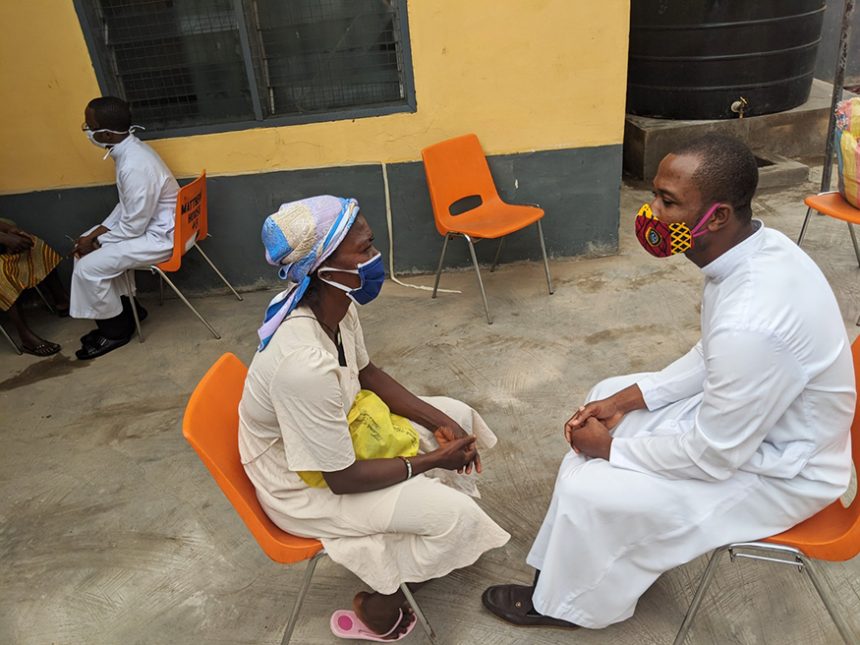When our organization began in 1999, it was in response to the HIV/AIDS pandemic sweeping through Sub-Saharan Africa. GPIC partner, Matthew 25 House, began in Ghana in 1998 with a similar mission. HIV is one of the deadliest global public health threats in recent history, having claimed nearly 33 million lives to date. This viral infection attacks the body’s white blood cells (CD4 cells) and the body can become severely immunocompromised and advance into acquired immunodeficiency syndrome (AIDS). Thankfully, significant advances have been made in HIV/AIDS treatment over the past 20 years. Although a cure does not exist, a combination of drugs, or antiretroviral therapy (ART), reduces the viral load of HIV and slows its progression throughout the body. But now the COVID-19 pandemic poses a significant threat to progress in HIV diagnosis, prevention, and treatment.
An estimated 38 million people are living with HIV, with 68% of adults and 53% of children receiving lifelong ART. Despite gaps in HIV services, HIV has become a largely manageable chronic health condition, with infection rates dropping by 39% and HIV-related deaths falling by 51%. But according to a recent World Health Organization (WHO) survey, 73 countries have warned that they are at risk of stock-outs of antiretroviral (ARV) medicines as a result of the pandemic. Some experts forecast a six-month disruption in access to ARVs which may result in a doubling of AIDS-related deaths (500,000+) in Sub-Saharan Africa in 2020 – 2021. Palliative care organizations still play a key role in treatment and support for people living with HIV/AIDS and they must be supported to continue this role during the current pandemic.
GPIC partner, Matthew 25 House, has expanded its HIV services to high-risk populations despite the challenges created by COVID-19. Located in Koforidua, Ghana, Matthew 25 House has cared for people living with or impacted by HIV including orphans and vulnerable children since its opening in 1998. They have supported over 500 adults and 200 children to date. Today, it houses 100 people—mostly women affected by HIV—whose health and economic situations have worsened due to COVID-19.
With support from their US partner, VITAS Innovative Care of Chicago and other well-wishers, Matthew 25 House extended their support to patients of nearby hospitals as well. Matthew 25 House partnered with St. Joseph’s Hospital, Akuse Government Hospital, and St. Martin de Porres Hospital to provide 150 people living with HIV/AIDS with essential groceries, face masks, financial support, and the supply of medicines to those in need, along with education on COVID-19. They also offer psychosocial counselling and support which are vital to the survival and well-being of these patients.
In spite of their success, Matthew 25 House emphasizes the need for continued action and support for those who are bedridden and in desperate need of support. The aforementioned hospitals have an additional 600 people living with HIV/AIDS who cannot afford to receive ART by themselves and thus require external support. Matthew 25 House will continue to do what it can, but a global effort will be required to maintain effective treatment and control of HIV to those in need.
WHO Director-General, Dr. Tedros Adhanom Ghebreyesus, noted that, “Countries and their development partners must do all they can to ensure that people who need HIV treatment continue to access it. We cannot let the COVID-19 pandemic undo the hard-won gains in the global response to this disease.” Executive Director of UNAIDS, Winnie Byanyima, adds that the right to health means that no single disease should be fought at the expense of another. Indeed, the COVID-19 pandemic is a primary focus for much of the world’s population, but we cannot turn our backs on the ongoing struggles of our most vulnerable communities.

